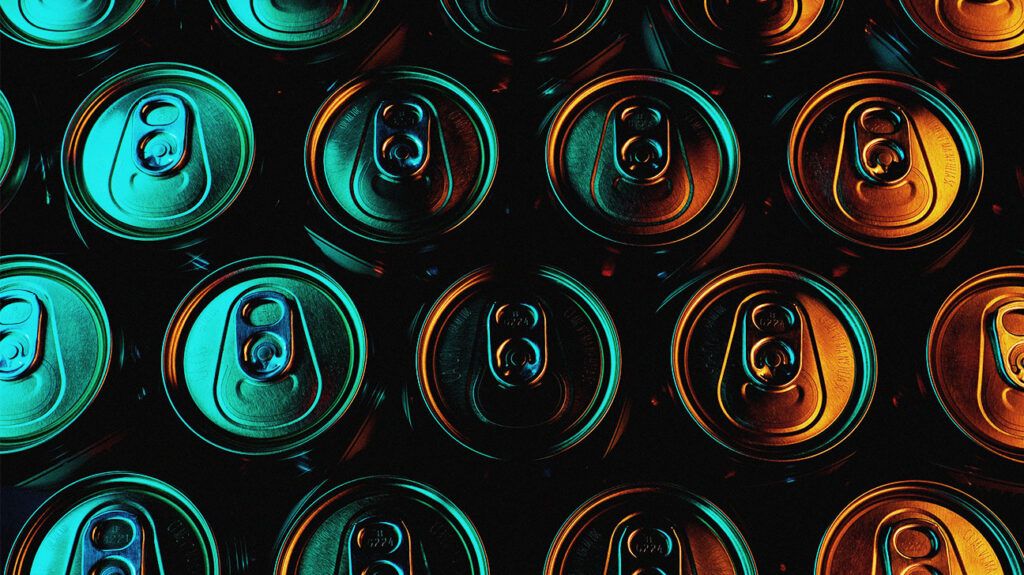Cannabidiol (CBD) drinks are beverages that contain an infusion of CBD. They are available ready-made or as mixable powders and are available in health stores.
The cannabis plant contains compounds called cannabinoids. One of which is an active compound called cannabidiol, or CBD. Researchers are studying its potential benefit for human health, and many products are available containing extracts or infusions of CBD, including edibles and drinks.
CBD is not the same as tetrahydrocannabinol (THC), which is responsible for the “high” people may associate with cannabis use. However, many CBD products contain some traces of THC and other cannabinoids. Federally, CBD products may legally contain up to 0.3% THC. Some states allow cannabis products with higher concentrations of THC.

CBD drinks often include teas, sparkling waters, sports drinks, coffee granules, iced coffees, or sodas. Retailers typically class them as edibles — CBD products a person usually consumes as food. A person can buy prepared drinks in bottles or cans, or they can mix the drinks at home using powders.
They are usually available from
Manufacturers make CBD drinks by infusing the cannabinoid into a beverage using an
People may wish to use CBD products due to their possible health benefits. CBD drinks are widely available, often flavored appealingly, and convenient to consume.
Other forms of CBD are available but may be less appealing or easy to use. For example, they may involve taking a capsule, which people may not be able or willing to do, or using tinctures with a dropper under the tongue, which may taste unpleasant.
The marketing of CBD products often promotes them for reducing anxiety or improving muscle and joint function during physical activity. However, there is currently no strong evidence to support their use for these purposes.
At present, the only form of CBD with Food and Drug Administration (FDA) approval is a
Otherwise, according to the National Center for Complementary and Integrative Health (NCCIH), studies either provide weak evidence or show effects that
- addiction
- anxiety
- insomnia
- persistent pain
Despite their relative convenience, CBD drinks may not provide the direct health benefits many people look for when consuming them. However, some products provide other potentially useful ingredients that also feature in non-CBD drinks, such as added electrolytes or healthy compounds in teas and coffee.
Whether CBD provides other benefits in addition to these is unclear, and the benefits may vary between products depending on its preparation, other ingredients, and sugar content.
Researchers are still confirming many of CBD’s potential benefits. A 2017 study added to this uncertainty by concluding that the
CBD drinks share similar risks to other CBD products. Consuming CBD can cause some side effects, especially at high doses. These might include:
- dry mouth
- drowsiness
- light-headedness
- low blood pressure
- at especially high doses, liver injury
According to the Arthritis Foundation, CBD drinks and other edibles may feature unreliable dosing guidelines. A
The labeling of a CBD drink may also be appealing to children, but a CBD beverage can or container is often not childproof. This means that storing CBD drinks away from children safely is crucial for preventing unsafe use.
CBD drinks often also contain added sugars and flavorings. These do not generally support a balanced and nutritious diet. Other delivery methods, such as oils and tinctures, may contain less sugar and provide a more reliable dose of CBD.
The FDA maintains that vendors cannot sell CBD as a dietary supplement and do not consider it safe as an additive in edibles and drinks. People considering CBD drinks may wish to consult their doctor before use, especially if they already take any medications for other conditions. This is because CBD can interact with other drugs.
Several factors can help people select a CBD drink, although there is limited evidence to support their use. People may wish to take the following steps before buying:
- Be sure that the drink is legal, containing less than
0.3% THCTrusted Source , or in line with state cannabis use regulations. - Check that the manufacturer
has not used pesticidesTrusted Source in the production of the drink. - Check the FDA’s list of manufacturers to which they have
sent warning lettersTrusted Source , and ensure that the drink’s manufacturer is not on it. - Look for third-party testing from an external, independent laboratory that has ISO-IEC-17025 certification that has confirmed the absence of heavy metals, microbes, and mold, as well as pesticides.
- Check the ingredients list for added sugars, additives, and flavorings, and be aware of any that may trigger known allergies and intolerances. Low sugar options are available.
People considering CBD drinks should also consider these other product factors:
- CBD content
- manufacturer and retailer reputations
- price
- online reviews
- flavor preferences
CBD drinks are beverages such as flavored teas, coffees, sports drinks, and sodas that contain a CBD infusion. Health retailers often sell them along with gummies and other edibles.
Some proponents may suggest that CBD beverages help to relieve anxiety or reduce pain and inflammation. However, there is not currently much evidence to suggest that CBD drinks possess these benefits.
They also often have high sugar content and may not provide the advertised CBD content due to inaccurate labeling. For people seeking to explore the potential benefits of CBD, tinctures and oils may be safer, more effective forms. It is advisable to consult a doctor before taking CBD products to treat a medical condition.


